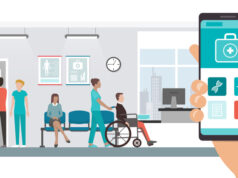After a grim and deadly year, and just in time for the holiday season, Americans finally have reason to hope.
This week, the U.S. government began delivering the first 2.9 million doses of BioNTech and Pfizer’s vaccine, with 20 million to be administered by the end of December. Last week, the U.S. doubled its initial August order for 100 million doses of Moderna’s offering. The federal government is also negotiating a new deal with Pfizer to take delivery of more of its vaccine in the spring.
Based on a glowing review of Moderna’s data Tuesday, FDA officials recommended on Thursday that members of its Vaccines and Related Biological Products Advisory Committee issue the company the Emergency Use Authorization (EUA) it needs to begin distributing the first 6 million doses of its drug across the country, ramping up to 20 million by the end of December.
In total, the two companies’ offerings can vaccinate 150 million Americans by the end of June. Barring successful renegotiations with Pfizer, the remaining 180 million people in the U.S. will either need to wait until these companies deliver their promised doses to other world governments or receive a different vaccine.
AstraZeneca and Johnson & Johnson are expected to seek Emergency Use Authorization for their vaccines in the first quarter of 2021.
What lessons can these and other future Covid vaccine candidates take from the FDA’s response to Pfizer and Moderna’s study data?
Black Lives Have to Matter
With two Black Americans being killed by Covid-19 for every white American, the federal government has emphasized from the beginning that health equity had to drive vaccine development.
“From day one, the message was clear: ‘Vaccine trials needed to represent America,’” said Dr. Paul Offit in a phone interview.
Offit is a member of FDA’s vaccine advisory group and was also active in the NIH’s Accelerating Covid-19 Therapeutic Interventions and Vaccines (ACTIV) public-private partnership that launched on April 17.
“The goal all along has been to ensure that when you go into these hardest-hit communities you can say: ‘Look you’re in this trial, you’ve been represented in this trial,’” Offit said. “Black Americans are both skeptical of the medical establishment and especially likely to be killed by the virus, so we need to break through that barrier.”
From their choice of principal investigators to selection of clinical trial candidates to evaluation of data, both Pfizer and Moderna delivered on historically public health-driven protocols. When the two companies saw their Phase III trials lacked sufficient racial and ethnic representation, they paused them.
“I would rather we have higher diverse participants and take one extra week,” Moderna CEO Stephane Bancel told CNBC. Diversity “matters more to us than speed.”
Partner With Government Early — And Communicate Often
While Moderna participated in the U.S. government’s vaccine research and development accelerator Operation Warp Speed and Pfizer did not, both Pfizer and Moderna had early and strong relationships with government agencies that allowed them to deliver strong protocols and Phase I results. [Pfizer is getting federal aid to distribute the vaccine, however.]
Regulators and the companies agree that these relationships sped up research without sacrificing quality.
After previously collaborating with Moderna on a serum to fight Middle East Respiratory Syndrome (MERS), the U.S. National Institute of Allergy and Infectious Diseases (NIAID) supported the California company in the rapid development of accurate Phase I trial assays and Phase III Covid trials.
As far back as May, Moderna Chief Medical Officer Tal Zaks told investors that thanks to NIAID’s standardization of assays for its trials, the company was going into Phase III not worrying if the vaccine was safe and efficacious, but more what the ideal dosing would be and how many patients they would need to prove it.
This paid off in the FDA’s Phase III data analysis this week, which found Moderna’s vaccine has a “favorable safety profile” based on its delivery to 30,000 volunteers and that there are “no specific safety concerns identified that would preclude issuance of an EUA.” The agency also affirmed Moderna’s overall finding of 94% effectiveness two weeks after the second dose of vaccine, when given 28 days after the first.
Despite its early role as a front-runner in the vaccine race and excellent scientific credentials in vaccine development, AstraZeneca damaged its relationship with regulators and slowed the development of its Covid vaccine through a “pattern of communications blunders,” according to a report in The New York Times. These include an incident in September when FDA officials were reportedly surprised with news that the company had halted its Phase III trial after a participant became ill.
Don’t Reinvent the Wheel
Both Pfizer and Moderna relied heavily on work that had begun before the SARS-2-Cov outbreak, using mRNA platforms that had been in development for decades, though they had yet to result in a successful vaccine.
Johnson & Johnson and AstraZeneca have adopted this approach as well, basing their Covid vaccine candidates on existing adenovirus vaccine platforms, which allowed them to get up and running immediately and gave the FDA a basis to analyze results of current vaccine trials against prior candidates’ results.
AstraZeneca researcher Dr. Sarah Gilbert was able to start work on the vaccine Jan. 10, just one day after Chinese researchers released the virus’s genetic sequence.
The Impact of Early Success on Future Research
Vaccine makers and the FDA are faced with an ethical dilemma grounded in these drugs’ early success: continue with fully randomized controlled trials, forcing some people to receive placebo and thus risk contracting this deadly disease, unblind the study and lose the ability to follow up on longer-term vaccine effects without bias, or do a blinded cross-trial, which would allow all participants to receive the vaccine (but at a potentially unfeasible cost)?
Moderna’s Zaks recently told Biocentury that he hopes vaccine makers that follow Moderna will rely on its findings instead of using a full Stage III trial with a placebo arm. This could mean no more placebo-controlled Covid vaccine trials moving forward — but instead the use of “correlates of protection” that would render large-scale, placebo-controlled trials unnecessary.
During Moderna’s presentation to FDA Thursday, Lindsey Baden, the co-principal investigator of Moderna’s trial at Brigham and Women’s Hospital, proposed the company offer patients who had received placebo, doses of the vaccine. These are doses that were manufactured for the clinical trial and about to expire, and her proposal is due to the fact that Moderna had seen two to three severe cases of disease among placebo recipients in the trial each week.
However, also on Thursday, Stanford Professor of Medicine Steven Goodman argued to the FDA that once the genie is out of the bottle, you can never really go back to placebo-controlled trials.
“There will be a precedent, as soon as something has been shown to be effective and available, that it’s unethical to ask people to wait any more time to be immunized in any way,” Goodman reasoned, “and this is a precedent you may not want to set.”
All in all, the first candidates to present Phase III data to the FDA have set a high bar.
“We did it,” Offit said. “We have two good candidates and a decent pipeline. The question now is how many will get to the finish line.”
Photo: Waldemarus, Getty Images







